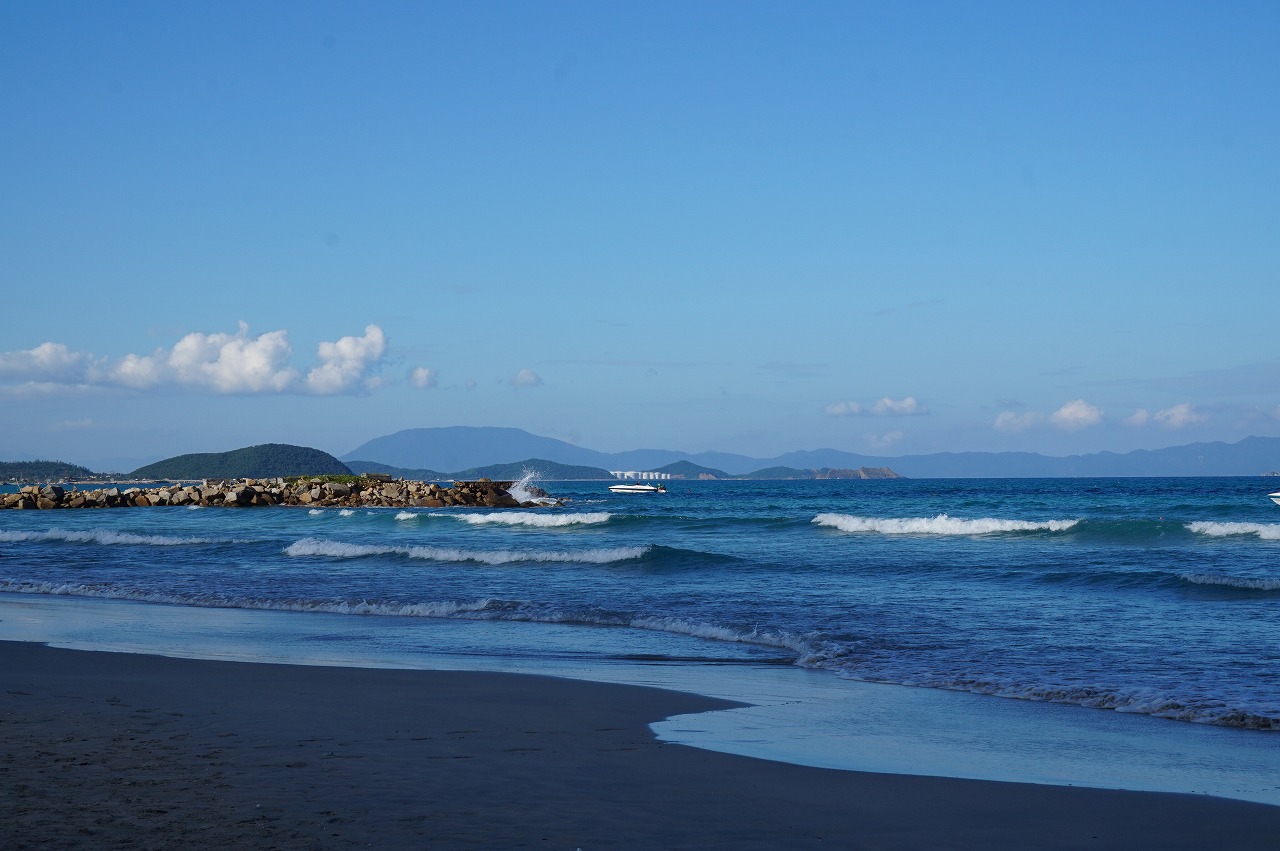
The Japanese environmental NGOs submitted a letter yesterday to the Japan Bank for International Cooperation (JBIC), a Japanese export credit agency to point out a clear and critical violation of the “JBIC Guidelines for Confirmation of Environment and Social Considerations (hereafter the Guidelines)” . The project in subject is the Van Phong 1 Coal-Fired Power Generation Project which JBIC signed a loan agreement for on April 19, 2019. It is a project that Van Phong Power Company Limited, a Vietnamese company invested by Sumitomo Corporation, builds, owns and operates (BOT) a super critical power plant with two units of 660MW.
During a meeting between JBIC and the NGOs, JBIC spoke that they had not obtained resettlement action plans or other relevant plans, when these documents were necessary for environmental review according to their own guidelines.
The project was already criticized by Japanese as well as international civil society organizations, as it would not only have serious social and environmental impact, but also breaches the OECD Sector Understanding. The OECD Sector Understanding states that the export credit finance can only be provided to projects larger than 500MW that either 1) use ultra super critical (USC) technology, or 2) have an emission intensity lower than 750g CO2/kWh, but neither criteria applies to the Van Phong 1 project.
The letter demands that JBIC suspend the loan disbursement and re-conduct the environmental review process, after obtaining the resettlement action plans and the other relevant plans.
Please see the letter below.
---
Mr. Tadashi Maeda
Governor
Japan Bank for International Cooperation
JBIC is violating its Guidelines in the Van Phong 1 Coal-Fired Power Generation Project
Japan Center for a Sustainable Environment and Society
Kiko Network
Mekong Watch
We, the NGOs signed above found a clear and critical violation of the “JBIC Guidelines for Confirmation of Environment and Social Considerations (hereafter the Guidelines)” by JBIC, and therefore we are submitting this letter. The project in subject is Van Phong 1 Coal-Fired Power Generation Project which JBIC signed a loan agreement for on April 19, 2019. It is a project that Van Phong Power Company Limited, a Vietnamese company invested by Sumitomo Corporation, builds, owns and operates (BOT) a super-critical power plant with two units of 660MW.
The Guidelines states that, for projects that are classified as Category A (projects likely to have a significant adverse impact on the environment,) which the Van Phong 1 project falls into, “borrowers and related parties must submit following documents and JBIC conducts environmental reviews on, and after the receipts of these documents:
1) Environmental and Social Impact Assessment reports and environmental permit certificates issued by the host governments or other appropriate authority.
2) For projects that will result in large-scale involuntary resettlement or loss of means of livelihood, resettlement action plans, including where necessary, livelihood restoration plans.
3) For projects that will require measures for indigenous peoples, indigenous people’s plans.”
The Van Phong 1 project results in involuntary resettlement of 97 households (379 persons), and thus it falls under 2). However, JBIC conducted environmental reviews WITHOUT OBTAINING resettlement action plans or livelihood restoration plans, and finalized the decision to finance this project.
It was at the meeting between JBIC and us NGOs on May 14, 2019, where we confirmed that JBIC had not obtained resettlement action plans or the other relevant plans. We asked whether or not JBIC had obtained the resettlement action plans, and if so, when was it obtained. The answer was that JBIC had not obtained the resettlement action plans. JBIC explained that the resettlement action plans, which the Vietnamese authority made, is hard to obtain and the borrower of the Van Phong 1 project has not obtained them either. Also, JBIC explained that supplemental documents the borrower (in Van Phong 1 case, the project proponents) will draw up, including the livelihood restoration plans, will be made starting now and JBIC “will” obtain them.
It is a clear violation of the Guidelines that JBIC conducted the environmental reviews without the resettlement action plans or the livelihood restoration plans. We pointed out this violation at the meeting mentioned above, and yet, JBIC’s response was that there is no obligation for JBIC to obtain resettlement action plans or the other relevant plans from the standpoint of the Guidelines. If JBIC is confirming that “involuntary resettlement and loss of means of livelihood” is being taken into consideration with such understanding of the Guidelines, then, we believe it is a critical flaw in exercising the Guidelines.
The plan of Van Phong 1 project was approved by the Vietnamese government in 2009. JBIC explained that the resettlement action plans were made step-by-step from 2010 to 2017, which indicates that resettlement has been conducted taking several years. In fact, for these several years, there were news coverages that resettlement is not proceeding due to a number of disagreements including on the compensation amount. In addition, at the meeting on March 8, 2019 the NGOs provided JBIC the information that there are still residents living inside the planned site, refusing to resettle, and the case is still ongoing in court. This is another serious problem that while JBIC was aware of the problems occurring about resettlement, it had not obtained and checked the resettlement action plans or the other relevant documents.
As there is a Guideline violation stated above, JBIC should immediately stop loan disbursement and re-conduct the environmental review process, after obtaining the resettlement action plans and the other relevant plans. Also, we strongly request JBIC to examine the Guideline violation this time, and place a recurrence prevention measure.
Yours sincerely,
CC:
Mr. Shinsuke Toyonaga, Examiner for Environmental Guidelines (of JBIC)
Mr. Kazuaki Hoshino, Examiner for Environmental Guidelines (of JBIC)
Mr. Akira Rokusha, Examiner for Environmental Guidelines (of JBIC)

